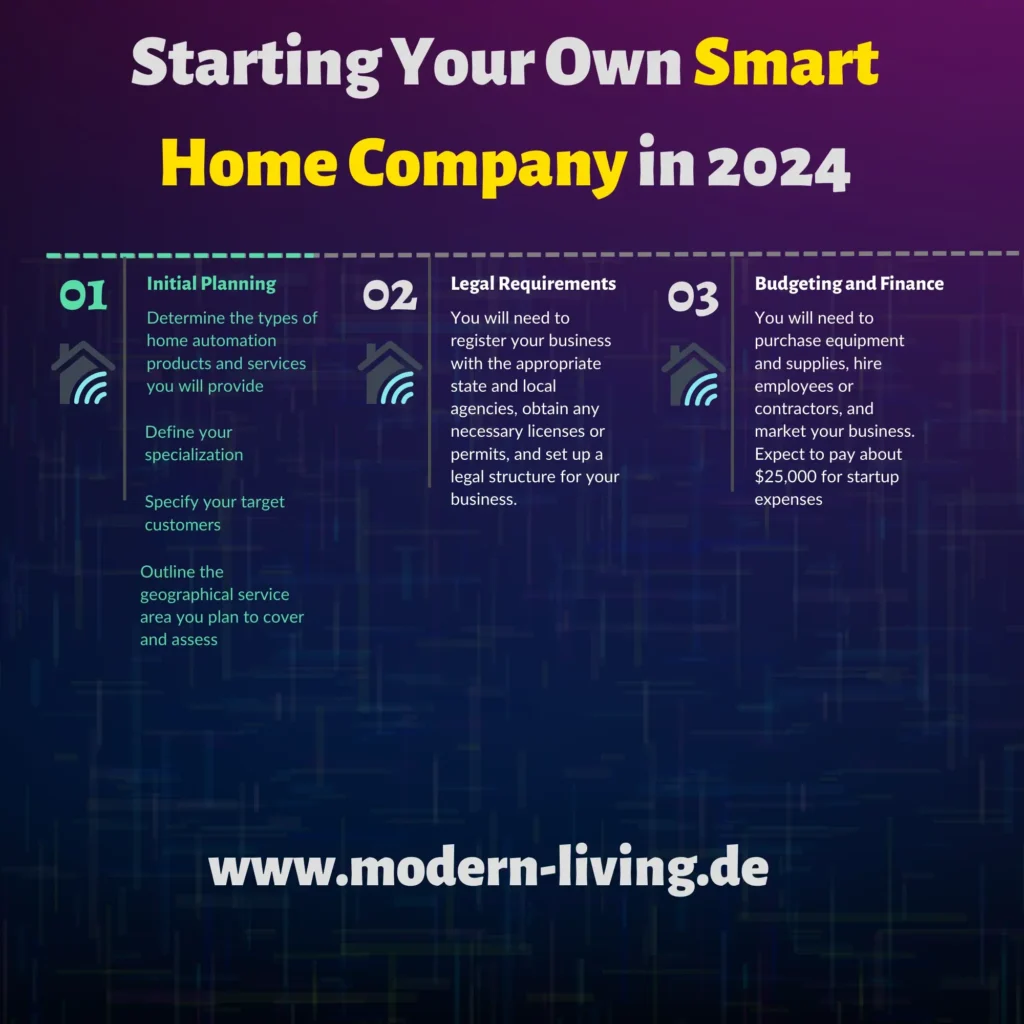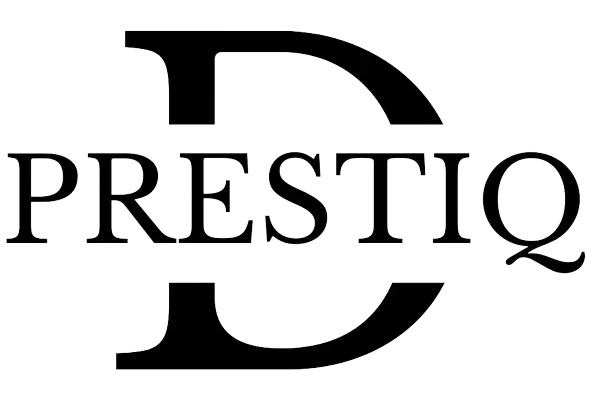Are you interested in starting a home automation business? With the increasing demand for smart homes, it’s no surprise that the home automation industry is booming. In fact, the market size is projected to reach $114 billion by 2025. As someone who has experience in this industry, I’m excited to share my insights on how to start a successful home automation business.
First and foremost, it’s important to understand what a home automation business is. Essentially, it’s a company that uses technology to create a centralized, digital system for homes. This system can help homeowners control their lighting, home security, HVAC services, and even power their appliances and entertainment electronics. As a home automation business owner, you’ll be responsible for designing, installing, and maintaining these systems for your clients.
Starting Your Own Home Automation Business

Are you interested in starting your own home automation business? It’s a great time to get started, as the demand for smart home technology is on the rise. In this section, I will provide you with some initial planning tips, legal requirements to consider, and budgeting and finance suggestions to help you get started.
Key Players in the Market
The home automation market is currently dominated by a few key players, including Amazon, Google, and Apple. These companies have developed their own smart home ecosystems, which include a range of devices and services that work together seamlessly.
In addition to these tech giants, there are also a number of smaller companies that specialize in home automation products and services. These companies may focus on a particular area of home automation, such as lighting or security, or they may offer a more comprehensive range of products and services.
As someone who is interested in starting a home automation business, it is important to understand that the competitive landscape and identify opportunities for differentiation. This may involve focusing on a particular niche or offering a unique combination of products and services that sets you apart from the competition.
Initial Planning
Before starting a home automation business, it’s important to do some initial planning. This includes determining the types of home automation products and services you will provide, defining your specialization, and specifying your target customers. You should also outline the geographical service area you plan to cover and assess your competition.
One way to stand out from your competitors is to choose a smart home solution that is structured and organized. Look for a reliable, future-proof foundation for your smart home business that offers a variety of integrated products.
Legal Requirements
Starting a home automation business requires compliance with several legal requirements. You will need to register your business with the appropriate state and local agencies, obtain any necessary licenses or permits, and set up a legal structure for your business. This may include forming a Limited Liability Company (LLC) or Corporation to protect your personal assets and separate your personal and business expenses.
Budgeting and Finance
Starting a home automation business can be expensive, so it’s important to create a budget and secure financing. You will need to purchase equipment and supplies, hire employees or contractors, and market your business. Expect to pay about $25,000 for startup expenses. Consider financing options such as a small business loan or line of credit, or seek out investors who are interested in your business concept.
Marketing Strategies for Home Automation Business
In this section, I will discuss some of the best marketing strategies that have worked for me and other successful home automation businesses.
Online Marketing
In today’s digital age, online marketing is a crucial aspect of any business. Here are some of the best online marketing strategies for home automation businesses:
- Social Media Marketing: Create social media accounts on platforms like Facebook, Twitter, and Instagram to promote your business and engage with potential customers. Share high-quality images and videos of your products and services, and encourage your followers to share them with their friends and family.
- Search Engine Optimization (SEO): Optimize your website for search engines like Google and Bing to improve your website’s visibility and drive more traffic to your site. Use relevant keywords in your website’s content, meta tags, and descriptions to rank higher in search results.
- Pay-Per-Click (PPC) Advertising: Use platforms like Google Ads and Facebook Ads to create targeted ads that reach potential customers who are interested in home automation products and services.
Offline Marketing
While online marketing is essential, offline marketing can also be effective in promoting your home automation business. Here are some offline marketing strategies to consider:
- Networking Events: Attend networking events in your local area to meet other business owners and potential customers. Bring business cards and promotional materials to hand out.
- Direct Mail: Create and send direct mail pieces like postcards and flyers to potential customers in your area. Make sure your promotional materials are eye-catching and include a clear call-to-action.
- Vehicle Wraps: Use vehicle wraps to turn your company vehicles into mobile billboards. This is an effective way to promote your business while driving around town.
A combination of online and offline marketing strategies can help you reach a wider audience and grow your home automation business. By using these strategies, you can increase your visibility, attract new customers, and ultimately increase your revenue.
Customer Service in Home Automation Business
Excellent customer service is very important. Providing top-notch service to your clients is not only crucial for retaining your business, but it also helps to build a positive reputation for your home automation business.
Tips for Effective Customer Service
Here are some tips for providing effective customer service in the home automation business:
- Be responsive: Responding to customer inquiries and concerns in a timely manner is crucial for building trust and maintaining a positive relationship with clients. Make sure to have a system in place for promptly responding to customer inquiries, whether it’s via phone, email, or social media.
- Provide clear communication: When working with clients, it’s important to communicate clearly and concisely. Explain technical concepts in a way that is easy for clients to understand, and make sure to keep them updated throughout the entire installation process.
- Offer personalized solutions: Every client is different, and their home automation needs will vary. Take the time to understand each client’s specific needs and preferences, and offer personalized solutions that meet their unique requirements.
- Follow up: After completing an installation or resolving a customer issue, make sure to follow up with the client to ensure their satisfaction. This shows that you value their business and are committed to providing the best possible service.
By implementing these tips, you can provide exceptional customer service and build a loyal customer base for your home automation business.
Growth and Expansion

In this section, I will discuss strategies for scaling your business and potential challenges that may arise.
Scaling Your Business
One way to scale your home automation business is by expanding your service offerings. Consider adding new smart home devices or services such as security systems, energy management, or home theater installations. This can attract new customers and increase revenue from existing ones. Additionally, hiring more employees or subcontractors can help you take on more projects and serve more customers.
Another strategy for scaling is to invest in marketing and advertising to reach a wider audience. Utilize social media platforms, paid search ads, and local directories to increase visibility and attract new customers. Building partnerships with contractors, builders, and real estate agents can also help you reach new customers and increase referrals.
Potential Challenges and Solutions
As your home automation business grows, you may encounter challenges such as managing cash flow, maintaining quality control, and hiring and retaining skilled employees. To address these challenges, consider implementing the following solutions:
- Cash flow management: Create a budget and track expenses closely. Offer financing options to customers to ensure timely payments. Consider partnering with a bank or lender to secure a line of credit.
- Quality control: Develop standard operating procedures and train employees on them. Use checklists and quality control measures to ensure consistent quality. Monitor customer feedback and address any issues promptly.
- Hiring and retention: Offer competitive compensation and benefits packages to attract and retain skilled employees. Provide ongoing training and professional development opportunities. Foster a positive company culture to promote employee satisfaction.
By implementing these strategies and solutions, you can effectively scale your home automation business and overcome potential challenges.
FAQ
How much can a home automation business make?
A home automation business can make $60,000 to $100,000 per year on average, depending on factors such as project size and complexity, reputation and credibility, and demand for services in the area.
What are the challenges of home automation?
The challenges of home automation include internet connectivity and reliability, compatibility issues between devices and systems, complexity of installation and maintenance, security and privacy concerns, and the need for technical expertise.
What is the future of home automation?
The future of home automation includes advancements in AI and machine learning, increased integration with smart devices and appliances, enhanced energy efficiency, greater security and privacy measures, and the potential for fully autonomous smart homes that can adapt to user preferences and behaviors.
If you liked this blog article about the topic: Apple Home Automation not working, don’t forget to leave us a comment down below to tell us about your experience.
Feel free to also check out our other Articles from the category “Home Automation“



